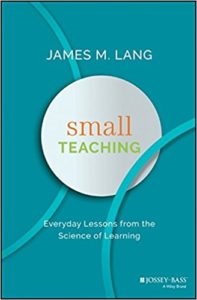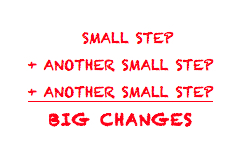By Jennifer A. McCabe, Ph.D., Center for Psychology, Goucher College
The college “classroom” certainly looks different these days. Due to campus closures in the wake of the COVID-19 pandemic, we no longer travel to a common space to learn together in physical proximity. Though most of us have transitioned to online instruction, there was insufficient time to prepare for this new model – instead, we are in the midst of “emergency distance learning,” with significant implications for teacher and student metacognition.

New Demands for Self-regulation
Now that certain overt motivators are no longer present, self-regulated learning is more critical than ever (e.g., Sperling et al., 2004; Wolters, 2003). Students are no longer required to hand in work during class, to engage in in-person class discussions about learned material, or to come face-to-face with instructors who know whether students are keeping up with the course. Instead they must figure out how to engage in the work of learning (and to know it is, indeed, still supposed to be work), away from the nearby guidance of instructors, other on-campus support sources, and peers. What are the effects of isolation on student metacognition? We can only find out as the situation evolves, and it will surely prove to be a complex picture. Though some will continue to succeed and even find new sources of motivation and revised strategies during this unusual time, others may experience a decline in metacognitive accuracy in the absence of typically available sources of explicit and implicit feedback on learning.
What metacognitive and motivational challenges face students who began the semester in a traditional in-person classroom, and now log in to a device to “go to class?” When I invited my (now online) students to report their experiences in preparing for our first web-based exam, many reported that the learning strategies themselves do not feel different as implemented at home, but that they are especially struggling with motivation and time management. Though these are common issues for college students even in the best of (face-to-face) circumstances, it seems they may be magnified by the current situation. For example, distractions look very different at home. Even if students already had figured out a system to manage distractions, and to channel their motivation to find focused time to implement effective learning strategies, this campus-based skill set may not translate to their current settings. Students need to recognize barriers to learning in this new context, and should be supported in developing (perhaps new or at least tweaked) strategies for academic success.
Regarding time management, online course deadlines may be timed differently – perhaps more flexibly or perhaps not – on different days of the week (instead of in a class meeting), late at night (or early in the morning), or over the weekend. Students must strategically allocate their time in a manner different from traditional classroom learning. This is compounded by the fact that some courses meet synchronously, some are completely asynchronous, and some are a hybrid. Managing this new schedule requires the metacognitive skill of recognizing how long different types of learning will take, applying the appropriate strategies, and – oh yes – fitting all that in with other non-academic demands that may change day to day. Planning is especially challenging – and anxiety-provoking – with so much unknown about the future.
Stretched Too Thin to Think Well
Looming over the learning, we cannot forget, is the actual threat of the virus, and the myriad ways it is impacting students’ mental and physical health. In my cognition classes, we discuss the implications of cognitive load, or the amount of our limited attentional resources (and therefore working memory capacity) being used for various tasks in a given moment; this current load determines how much is left over for tasks central to learning and performance goals (e.g., Pass et al., 2003). If working memory is consumed with concerns about one’s own health or the health of loved ones, financial concerns, caregiving needs, food availability, or even basic safety, it is no surprise that the ability to focus on coursework would be compromised. Intrusive worries or negative thoughts may be particularly troublesome right now, and again leave fewer resources available for learning new information. Instructors may want to consider evidence-based educational interventions – such as writing about worries to manage anxiety – that have been effective in clearing ‘space’ in mental load for learning tasks (Ramirez & Beilock, 2011).
Most importantly, we all need to understand (and accept) the limitations of our cognitive system, the implications of having limited attentional resources, and how to most effectively manage this shifting load. To better support students in metacognitive awareness, instructors across disciplines can incorporate information about cognitive load management and self-regulated learning strategies as part of their courses.
Teachers should also think carefully about the line between desirable difficulties – those learning conditions that are challenging, slow, and error-prone, but lead to stronger long-term retention – and undesirable difficulties – those challenges that are simply hard but do not result in better learning (e.g., Yan et al., 2017). When faced with a choice to add work or effort, consider whether it is part of the learning that relates to the core learning outcomes for the class. If it does not, given the current uniquely high-load circumstances we find ourselves in, drop it.
Further, be explicit and transparent with students about why assignments were retained or changed (ideally connecting these to those core objectives), and share with them your thought process about course-related design and assessment decisions. Most of all, communicate early and often with students about expectations and assessments to help them with motivation, scheduling, and cognitive load. Acknowledge that this is a highly atypical situation, show compassion, allow flexibility as you can, and let them know we are all learning together.
Imperative Explicitness
Metacognition in the time of COVID-19 must be even more intentionally brought from the implicit “hidden curriculum” of college to the explicit. Factors important to student metacognition, including self-regulated learning, should be named as a skill set central to academic (and life) success. Help them better understand their own learning and memory processes, and how strategies may need to evolve in changing circumstances, which for now means “emergency distance learning.” Perhaps a silver lining is that this investment in metacognitive flexibility will pay off in supporting students’ future endeavors. For teachers, this unexpected transition just might help us improve our student-centered approaches – wherever our classrooms may exist in the future.
Suggested References
Pass, F., Renkl, A., & Sweller, J. (2003). Cognitive load theory and instructional design: Recent developments. Educational Psychologist, 38(1), 1-4. https://doi.org/10.1207/S15326985EP3801_1
Ramirez, G., & Beilock, S. L. (2011). Writing about testing worries boosts exam performance in the classroom. Science, 331(6014), 211-213. https://doi.org/ 10.1126/science.1199427
Sperling, R. A., Howard, B. C., Staley, R., & DuBois, N. (2004). Metacognition and self-regulated learning constructs. Educational Research and Evaluation, 10(2), 117–139. doi:10.1076/edre.10.2.117.27905
Wolters, C. A. (2003). Regulation of motivation: Evaluating an underemphasized aspect of self-regulated learning. Educational Psychologist, 38(4), 189–205. doi:10.1207/S15326985EP3804_1
Yan, V. X., Clark, C. M., & Bjork, R. A. (2017). Memory and metamemory considerations in the instruction of human beings revisited: Implications for optimizing online learning. In J. C. Horvath, J. Lodge, & J. A. C. Hattie (Eds.), From the Laboratory to the Classroom: Translating the Learning Sciences for Teachers (pp. 61-78). Routledge.




